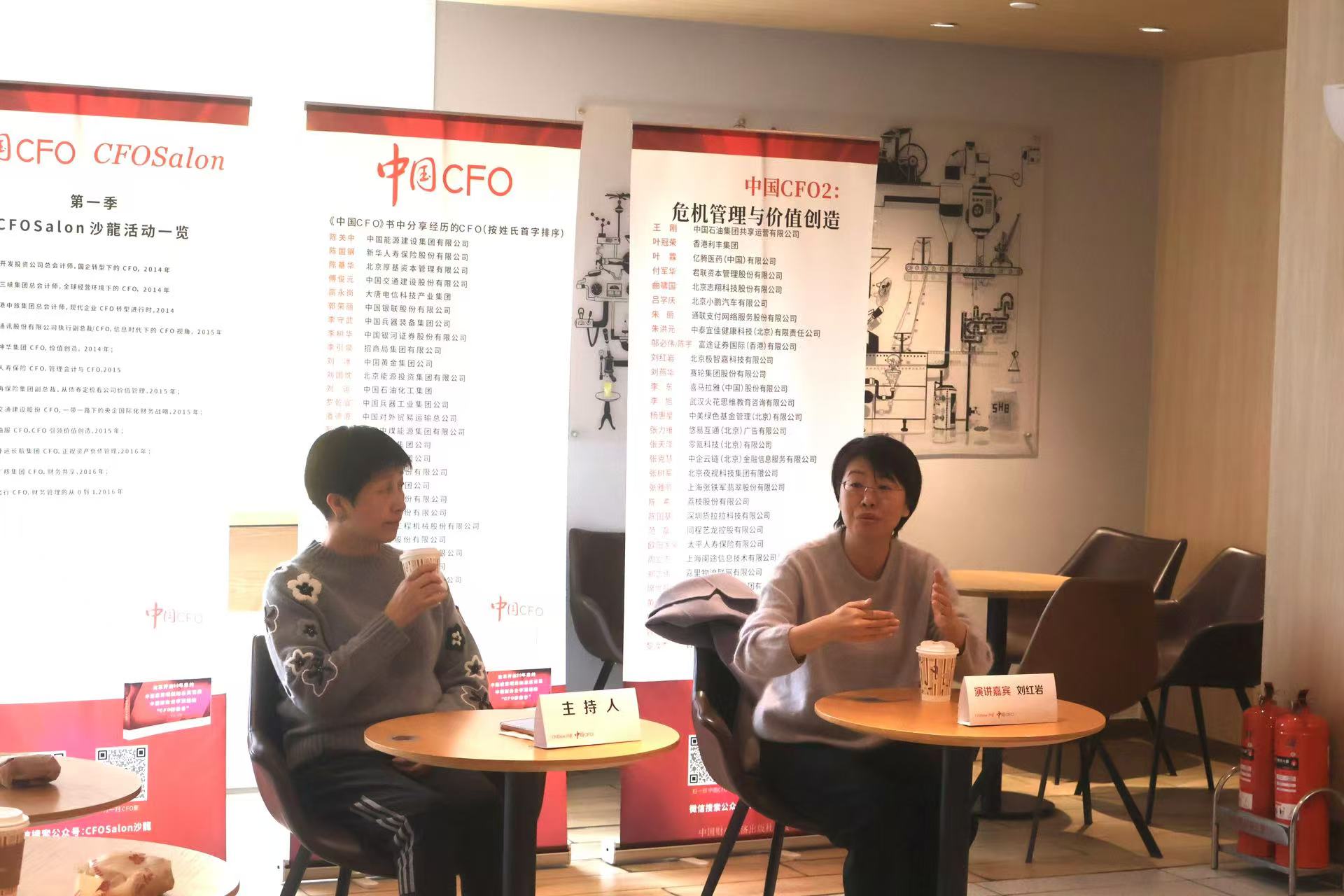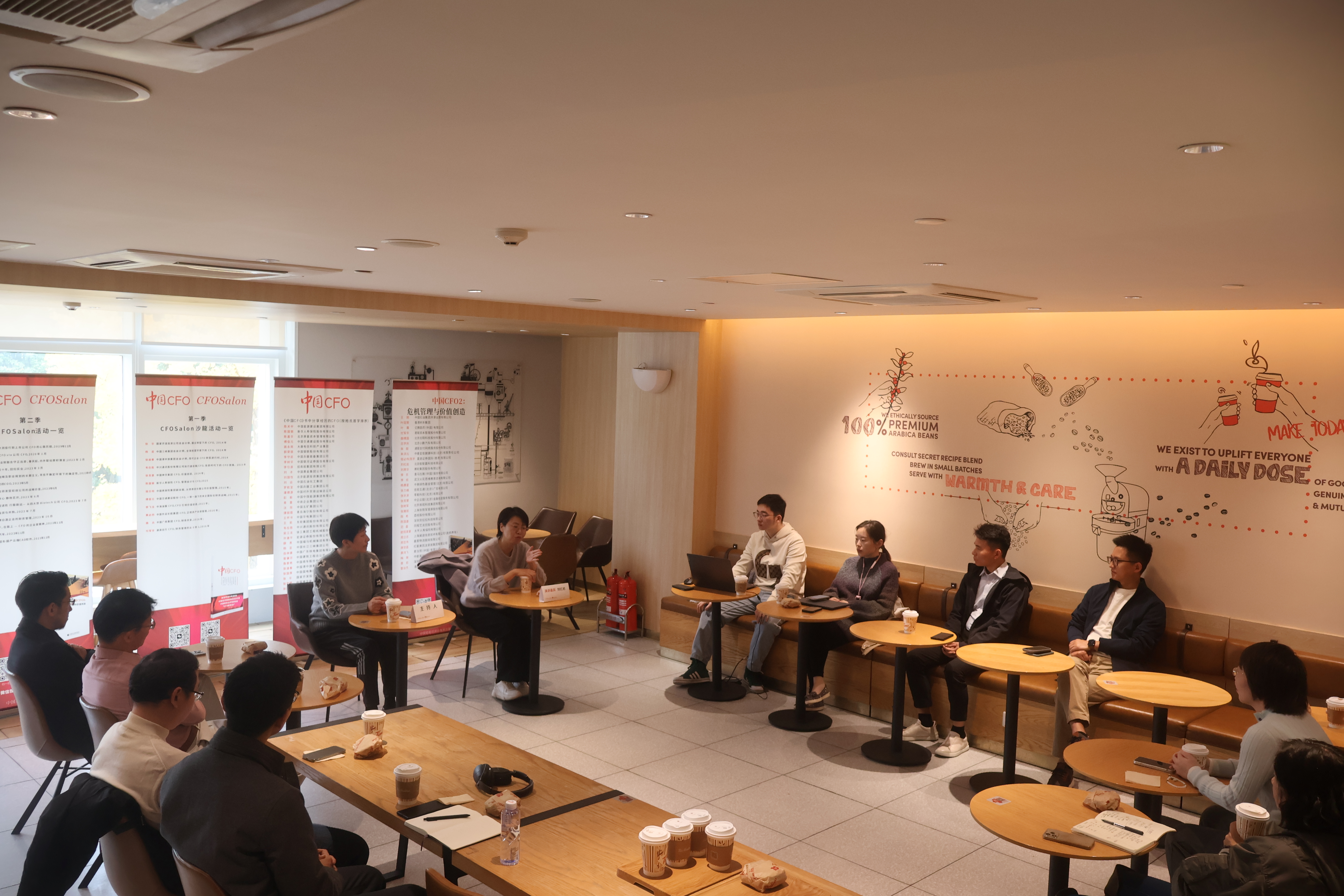
In today’s shifting economic landscape, a CFO’s focus can be summed up as “offensive and defensive’ strategies” – that’s the message from Liu Hongyan, chief financial officer of Geek+ Technology, at the 10th session of the CFO Salon’s third season recently held in Beijing.
“The offensive approach means proactively seizing opportunities abroad by building structured capabilities for international expansion. The defensive approach emphasizes safeguarding operational boundaries, reducing costs, improving efficiency, and enhancing resilience in an uncertain environment,” she said.
Founded in 2015, Geek+ is one of the world’s leading companies in warehouse robotics. It operates with integrated sales, operations, and service capabilities across more than 40 countries.
During the rapid e-commerce growth in China, Geek+ deployed large-scale robotic solutions in high-demand settings like Tmall Mart, Vipshop, and Suning warehouses. This experience created a strong foundation for expanding mature products and solutions to the overseas markets.
In 2017, Geek+ won a competitive bid to launch its first project in Japan, gaining customer trust and establishing a partnership to form a local subsidiary. This success led to further market expansion with a Hong Kong branch and an initial overseas team targeting global growth. The company has since extended its reach into major European and American markets, as well as Singapore and South Korea.
In 2019, Geek+ established subsidiaries in Germany, the United States. Over a year, the company built localized teams for sales, project management, and customer service to fully support local operations. This localized operational strategy, though placing significant pressure on the company during the pandemic, also led to rapid growth in overseas business. Starting in 2020, Geek+ saw its international orders surpass domestic ones.

After 2020, AMR technology gained rapid traction in China, but a price war intensified as capital-backed competitors flooded the market with various solutions. Geek+ believes that relying solely on price competition cannot secure a lasting industry position or encourage healthy industry growth and innovation. As a leader in the AMR industry, Geek+ aims to continue its global expansion, delivering its advanced products and solutions to more clients and driving logistics and supply chain technology transformation worldwide.
In the process of launching projects in Japan, Geek+ realized that international expansion is not only constrained by physical distance but also by cultural differences. For example, Japanese business culture emphasizes forming partnerships with trustworthy individuals, and building trust takes time. Therefore, finding a locally recognized or influential partner is a key strategy for entering the Japanese market. In South Korea, large conglomerates have extensive influence across various sectors of society and the economy. Partnering with these major groups or similarly influential organizations can also help facilitate business expansion in South Korea.
When establishing subsidiaries in Europe, Geek+ considers not only macro factors like politics and the economy but also the demographics and talent structure of the country. For example, Germany has the highest proportion of engineers among major EU countries. Germany has a larger Chinese community compared with other EU nations. These factors led Geek+ to choose Germany as the location for its subsidiary.
Maintaining consistency in corporate culture and communication is crucial during team building. People from different cultural backgrounds may interpret company policies differently, which poses challenges for managing a global, systematic organization. To address this, Geek+ assigns employees with varying skills according to the responsibilities of different roles, ensuring accurate and smooth communication to effectively complete tasks such as client interactions and product research and development.
The sudden onset of the COVID-19 pandemic disrupted the company’s business development plans in Europe and the US, and with no clear timeline for how long it would last, the company faced significant uncertainty. In response, the company took two main actions: securing financial support and controlling operational costs.
To ensure sufficient liquidity during the pandemic, Geek+ raised funds through two rounds of financing: firstly, a bank loan, which was small in amount but fast, greatly improving the company’s cash flow; and secondly, equity financing, which provided additional financial strength to weather the pandemic's impact.
As the pandemic measures showed results both domestically and internationally, and the business teams adapted to new working models, overseas orders quickly rebounded, even surpassing domestic ones.
Looking back, Liu Hongyan, CFO of Geek+, said: “This is the reward of not putting all our eggs in one basket.”
Geek+ places great importance on key clients, such as Siemens, Walmart, DHL, BMW, Toyota, and Nike. Through the collaborative efforts of clients and the company’s team, robotic solutions have been continuously refined and deeply integrated into application scenarios. The diverse needs of key clients have driven the company’s products to become more standardized and modular through constant iteration and optimization. Today, Geek+ offers the most diverse range of products and solutions in the industry.
On the other hand, Geek+ leverages its rich industry know-how and continuous empowerment of clients to enhance their competitiveness in supply chain management through technological innovation and improved efficiency, which has created a strong barrier in the highly competitive market.
While serving its key clients, Geek+ is also vigorously expanding its channels, building local channel support teams, strengthening channel policy management, and enhancing system openness and usability to accelerate channel development. However, channel development is not without challenges. It requires consideration of various factors such as politics, economics, and regulation. In addition to front-end business departments, middle-office operations, R&D, and back-office compliance and finance teams must also make adjustments in policies, systems, processes, and frameworks to align with the needs of channel development.

Question 1: Should key management positions, such as legal directors in overseas subsidiaries, be filled by locals or Chinese nationals?
There was no strong preference for candidates with either a Chinese cultural background or purely an overseas background. However, after several years of experience, we have found that key backend management roles should be filled by individuals who not only have a similar cultural background to that of the headquarters but also possess fluent bilingual communication skills. This is based on two main considerations. Different countries have different legal systems, and understanding laws and precedents is a precise task. These roles require professionals with significant expertise and local experience. Communication across languages and cultures can lead to misunderstandings. It’s important to bridge these gaps to ensure alignment.
Additionally, with the changing global economic environment, compliance costs in many countries, including in Europe and the US, have risen. Poor communication can lead to unnecessary complications and costs, highlighting the need for effective communication.
Question 2: Geek+ has been very successful in its international expansion. What are some key considerations for Chinese companies when seeking local partners during their overseas expansion?
There are many ways to find local partners, depending on a company's goals at different stages of development. Of course, there are some key principles, such as choosing partners whose goals align with the company's, ensuring a good match in terms of resources and capabilities. The best business model is one where both the company and its partner grow together, building mutual trust and a strong business chain. This way, as the company successfully expands its business, the partner also increases its influence in the local market and industry.
As the partnership develops, changes in both parties' expectations and needs may increase uncertainty, so it's important to recognize these changes and proactively adapt when necessary. Additionally, in different countries and regions, the approach to business expansion can be tailored to local economic and cultural characteristics. For example, in Japan, it is advisable to partner with local businesses to quickly establish trust and expand commercially. In Southeast Asia, it may be effective to collaborate with influential local family-owned businesses or with leading firms that already have a strong presence in the region.


